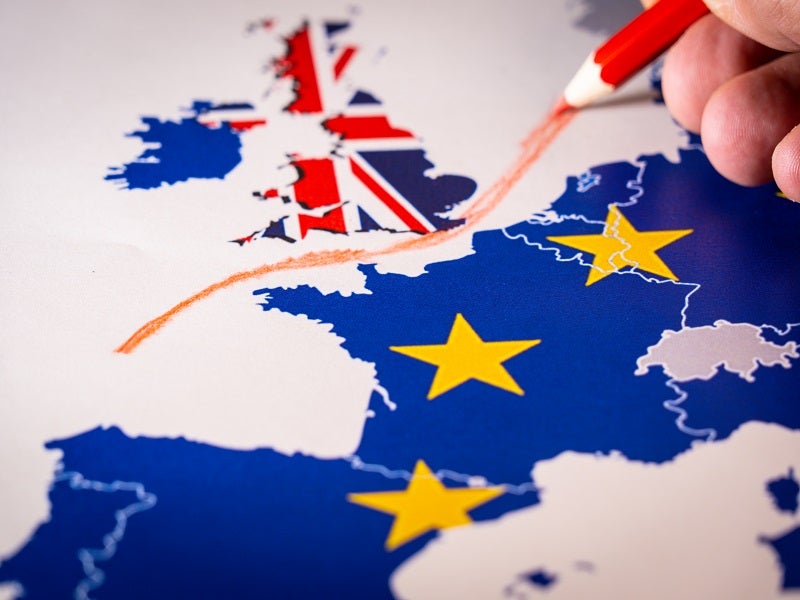The Covid-19 pandemic appeared at a time when the UK was preparing for Brexit. The debate on a no deal Brexit and a Brexit with a free trade agreement continue, although the impact of the pandemic adds another element to the debate. Macroeconomic influencers share their views on the Covid -19 impact.
Dina D. Pomeranz
Dina D. Pomeranz, economics professor at University of Zurich, shared an article on how the impact of Brexit could be two to three times greater than Covid-19 on the UK economy. The UK GDP is projected to decline by 1.7% over the next to three two years without much long-term impact.
The impact of Brexit on GDP, however, is expected to emerge gradually. Analysis by the government has indicated that a no deal Brexit could result in a decline of 7.6% in GDP after 15 years, while Brexit with a free trade agreement could lead to a 4.9% decline in GDP.
Is Covid-19 or Brexit a bigger shock to UK economy?
In terms of present value of GDP, Brexit impact is forecast to be 2-3 times bigger than Covid-19 effect
Thread below.
 GlobalData Strategic Intelligence
GlobalData Strategic IntelligenceUS Tariffs are shifting - will you react or anticipate?
Don’t let policy changes catch you off guard. Stay proactive with real-time data and expert analysis.
By GlobalDataOr read the @UKandEU blog: https://t.co/zR5zv2t8eP 1/
— Thomas Sampson (@thom_sampson) August 24, 2020
Howard Archer
Howard Archer, chief economic advisor to EY ITEM Club, shared an article on the increase in footfalls in the retail sector by 4.1% during the third week of August, according to Springboard, a research firm. Although the footfall was 30.7% lower than the same week in 2019, the increase is an improvement compared to an annual decline of 32.5% in the previous week.
Footfall still remains low in big city centres as shoppers and workers failed to return despite reopening of shops. Local high streets and holiday towns, however, recovered with more footfall compared to the previous year.
#Springboard report #UK shopper numbers across all #retail destinations rose 4.1% last week, up from a gain of 0.8% the previous week. However, footfall was still down 30.7% year-on-year in latest week https://t.co/r8hYyfFudw
— Howard Archer (@HowardArcherUK) August 24, 2020
Prof. Steve Hanke
Prof. Steve Hanke, economist at Johns Hopkins University, tweeted on US Representative Alexandria Ocasio-Cortez’s calls for additional stimulus. He noted that government spending is already at a high, which has pushed the US federal debt to more than $26.6tn.
The tweet was in response to Cortez’s criticism over comments made by the US Presidential candidate Joe Biden’s advisor, on how the growing deficit could limit government spending under Biden’s administration in the future.
Hanke questioned as to how the deficit created by the increased spending will be addressed. The article, however, noted that many economists recommend that the US should increase spending without worrying about deficit citing the cheap cost of borrowing and low inflation.
Reckless govt spending has pushed #US federal #Debt over $26.6T. Yet @AOC is demanding even greater deficit spending. Don't buy her #Socialist snake oil. Who will end up footing the bill for her #Coronavirus stimulus? The poor #Taxpayers she's "helping."https://t.co/bueX2AkzDm
— Prof. Steve Hanke (@steve_hanke) August 23, 2020
Dr Arvind Virmani
Dr Arvind Virmani, a macro economist, tweeted on the India’s delay in approving foreign direct investment (FDI) proposals from China. India has placed such proposals from China on hold and is maintaining status quo due to the Covid-19 pandemic and Line of Control standoff between the two countries.
Virmani noted that with the increase in capital inflows in 2020 and a competitive auto industry, the delay in approving FDI proposals will have little impact on the country. He added that the auto parts and components that are being imported from China are a different case altogether.
https://twitter.com/dravirmani/status/1297802763280117760




